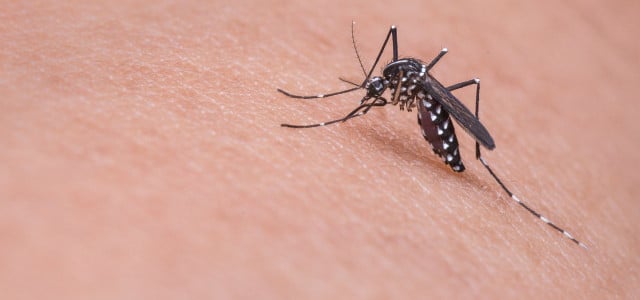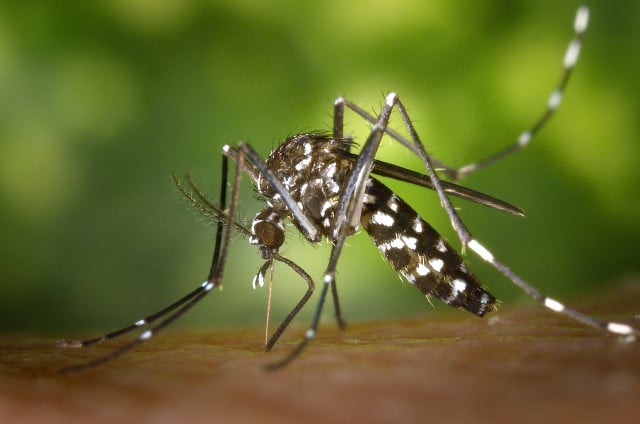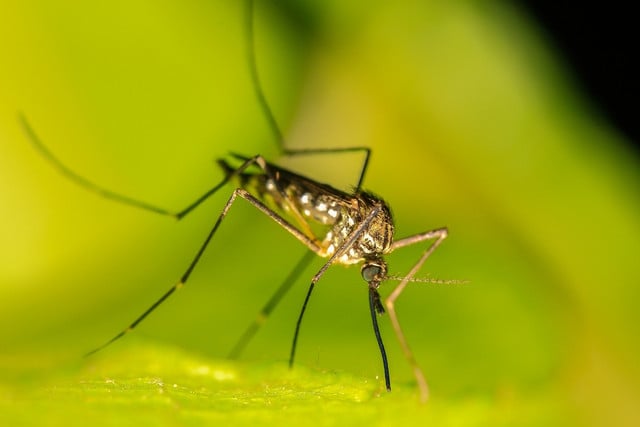
Does the tiger mosquito already live in Germany? And how dangerous is it really for us? We reveal this and how you can prevent the tiger mosquito in this article.
The Asian tiger mosquito (Aedes albopictus), as the name suggests, originally comes from East Asia. Due to global warming as a result of climate change and international trade and travel, the tiger mosquito has spread to America and Europe over the years. It was first sighted in Germany in 2007.
The black and white striped mosquito, which is just under one centimeter long, is considered to be particularly adaptable, which is why it is now considered established in numerous southwestern districts in Germany. In this article, you will find out what makes the tiger mosquito special and why it is dangerous for us.
Tiger mosquito in Germany: How dangerous is it?

(Photo: CC0 / Pixabay / WikiImages)
The tiger mosquito is considered more dangerous because it can transmit various disease viruses, including dengue, chikungunya and Zika viruses. However, to date there have been no known cases of the tiger mosquito transmitting pathogens in Germany. The risk is currently still considered to be low. Nevertheless, according to the Robert Koch Institute, the dengue virus in particular is spreading rapidly in this country through returning travelers.
The resulting dengue fever is an acute febrile illness that often occurs without specific symptoms and does not require any special treatment. In rare cases, however, it can be severe or even fatal. In 2024, the RKI recorded 737 cases of dengue fever in Germany in the first four months – three times as many as in the previous year. As the tiger mosquito population increases, the risk of transmission of dangerous viruses such as the dengue virus will also increase in the future.
According to Apotheken-Umschau, the situation in other countries is already more serious. In Italy, there were already several chikungunya fever epidemics caused by the tiger mosquito in 2007. In Brazil, over four million cases of dengue fever are expected this year.
Differences to conventional mosquitoes

(Photo: CC0 / Pixabay / mathias70)
According to the Federal Environment Agency, the Asian tiger mosquito is active during the day and is considered to be particularly aggressive compared to conventional mosquitoes in Germany. Only the female tiger mosquitoes suck blood. They are particularly attracted to the smell of human skin, but do not shy away from animals either.
It lays its eggs in many different places, including holes in branches or containers filled with water, such as rain barrels or birdbaths. The tiger mosquito can easily be confused with other mosquito species. The native ringed crane fly, for example, also has stripes.
Preventing the spread of the tiger mosquito in Germany

(Photo: CC0 / Pixabay / HeVoLi)
The larvae of the tiger mosquito need water to develop. So avoid all containers in your garden or on your balcony in which even small amounts of water can collect. Alternatively, you can cover them so that the females cannot lay their eggs. This is particularly useful if you live in an area where there is a high incidence of tiger mosquitoes. Read our articles on mosquito larvae in the garden and mosquito larvae in the rain barrel.
However, you should avoid using insecticide to fight the tiger mosquito. This will also harm other native insects that are important for our ecosystem. The tiger mosquito also has natural predators such as spiders, birds and bats.
Read more on Techzle\.com:
- 7 mosquito myths questioned: What studies say about “sweet blood”, sweat and soap
- Invasive species: characteristics, dangers and how they come to us
- Plants against mosquitoes: How to keep your terrace, garden and balcony free of mosquitoes
** marked with ** or orange underlined Links to sources are partly affiliate links: If you buy here, you are actively supporting Techzle\.com, because we then receive a small part of the sales proceeds. .
You might also be interested in these articles
-
Sweet alyssum: How to plant the fragrant flower in your garden
-
Quiz: Can you name all 9 butterflies?
-
Planning and creating permaculture correctly: tips for your garden
-
9 tips for more species protection & an insect-friendly garden
-
Growing vegetables: These 4 foods grow back (with video)
-
Book tip: Death of a Queen – Why do bees die like flies?
-
Bumblebee sting: How to treat it
-
11 self-sufficiency tips: Simple organic gardening on the terrace and balcony
-
American foulbrood: How dangerous it is for bees